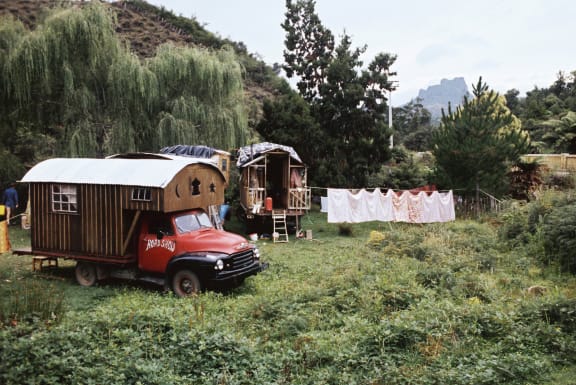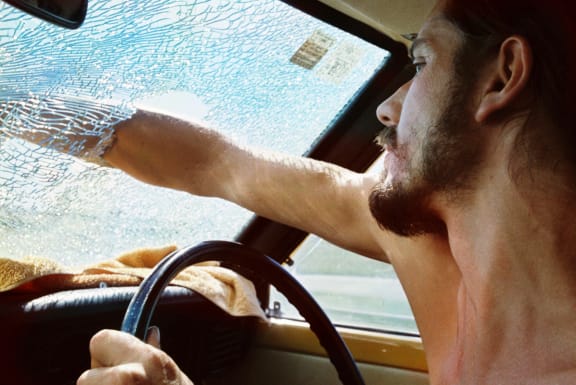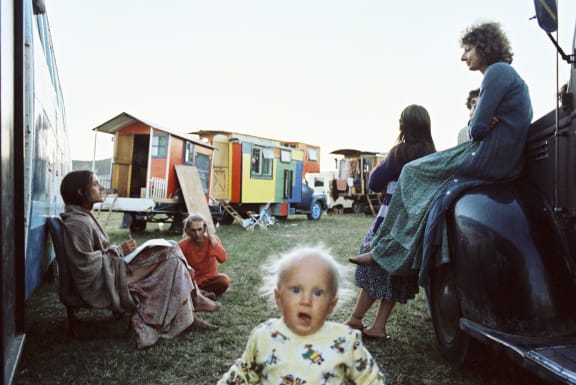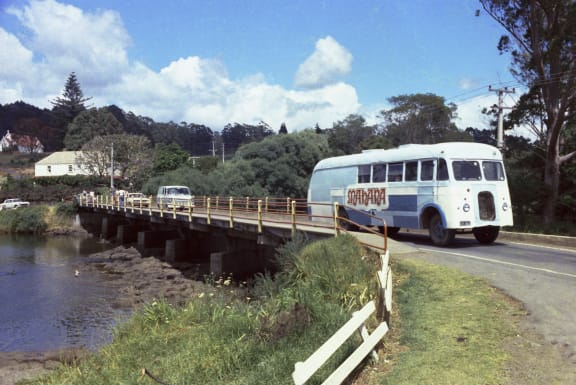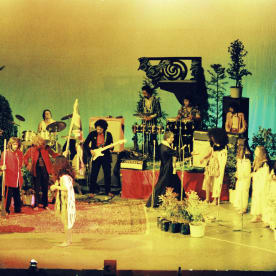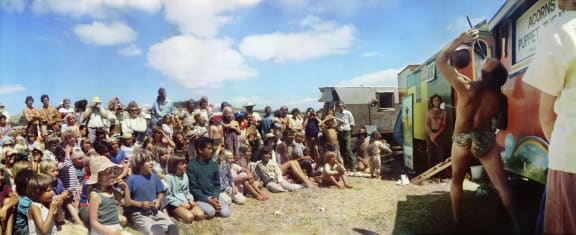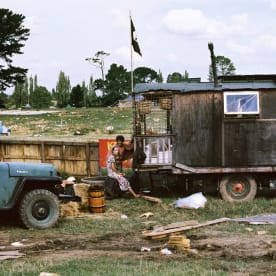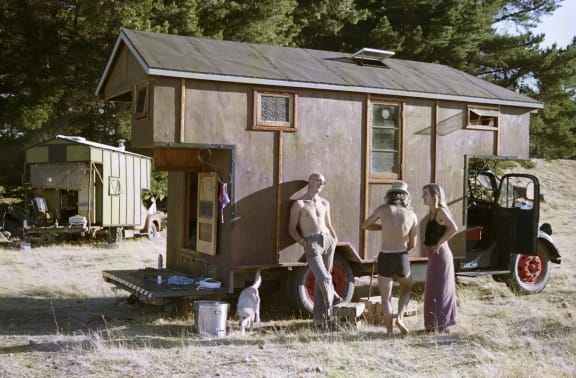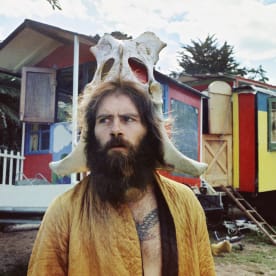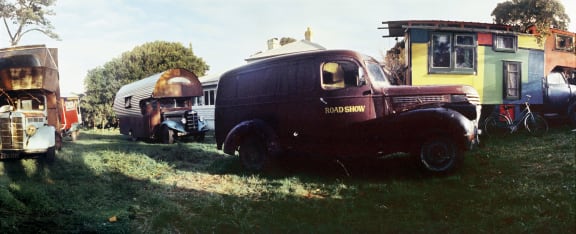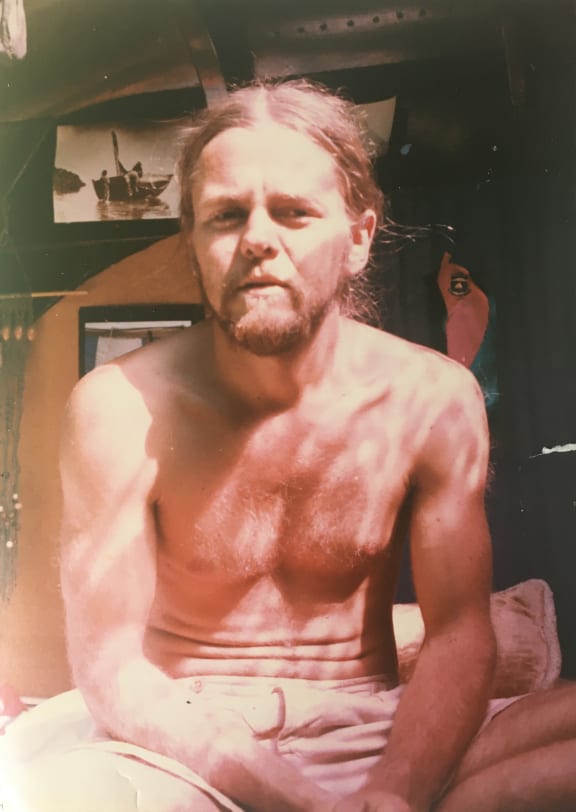Saturday Morning for Saturday 12 February 2022
8.10 Andriy Dubchak: reporting from the frontlines of Ukraine
Andriy Dubchak is the founder and CEO of Donbas Frontliner, a independent media outlet based in Ukraine and reporting on the escalating military tensions with Russia. Dubchak is usually based in Kyiv – but recently has been reporting from Mariupol, a port city in south eastern Ukraine which is home to about 500,000 people, and seen as a likely target for Moscow.
The city, which was briefly captured by Russia-backed separatists in 2014, holds a highly strategic position. If Mariupol was captured, Moscow could create a land corridor between Russia, the separatist territories, and annexed Crimea.

Photo: Andriy Dubchak / Facebook
8.20 Prof David Marples: Russia has reached point of no return

Photo: Supplied
Professor David Marples says the Russian leadership has reached a point of no return in its conflict with Ukraine. In his recent piece published on The Conversation, Marples argues that to withdraw troops would be humiliating for Putin, who relies on machismo to bolster his popular support.
He says it is clear that Russia will not be satisfied by talks, and there will be another attack on Ukraine in the next few weeks.
Marples is a distinguished professor of Russian and East European History at the University of Alberta, Canada. His recent books include The War in Ukraine's Donbas and Understanding Ukraine and Belarus.

Photo: AFP
8.35 Alex Ross: ‘it’s nice to see Spotify suffering a bit’

Photo: Josh Goldstine
There’s been unprecedented fallout for Spotify since musician Neil Young withdrew from the music streaming service in late January. Young’s move was in protest over the site’s publishing of Joe Rogan’s podcast, which is widely accused of spreading Covid-19 misinformation. This week CNN reported that traffic to Spotify's Premium cancellation page tripled in a week. Yet Spotify’s business model has long been of concern in the music industry in relation to its poor payment policies for musicians.
New Yorker music critic Alex Ross has written on the injustice of the streaming economy in response to the Neil Young saga. Ross’ books include 2009’s The Rest Is Noise: Listening to the Twentieth Century and his latest, Wagnerism: Art and Politics in the Shadow of Music.

A banner with the Spotify logo on it is seen as the company lists its stock on the New York Stock Exchange in New York, United States on April 3, 2018. Photo: AFP
9.05 Nils Melzer: the political persecution of Julian Assange
Nearly 12 years ago Wikileaks published the Afghan War Diary, one of the biggest leaks in US military history. More was to come. To avoid extradition to the States to face espionage charges, Wikileaks founder Julian Assange took refuge in the Ecuadorian embassy in London for seven years, before Ecuador turned him over to Britain in 2019. He is currently in Belmarsh Prison, south-east London.
Nils Melzer, the current UN Special Rapporteur on Torture initially declined to get involved in Assange’s case. But as he writes in his new book The Trial of Julian Assange, when he started to look closely at the facts he found Assange to be a victim of political persecution.

Photo: Eugene Jarecki / Supplied
9.40 Julie Zhu: the tamariki behind the takeaway counter

Julie Zhu Photo: Supplied
Growing up behind the counter of a dairy, takeaway or restaurant is a common experience for immigrant children in New Zealand. Mini-documentary series TakeOut Kids on The Spinoff looks into the lives of four such young people and the impact such a life has on their upbringing.
Julie Zhu is a film and theatre maker born in Xi'an, China and raised in Auckland. She is passionate about using the power of art and storytelling to enable positive social change, with a strong focus on immigrant stories. Her play Chinese (Other) saw 100 Chinese Aucklanders telling their stories and she has produced two seasons of RNZ podcast Conversations with My Immigrant Parents.
10.05 John Tucker: celebrating Aotearoa’s house trucks of the 1970s
Bringing together a treasure trove of photos by the late Paul C. Gilbert, new book Road People of Aotearoa chronicles the early days of the phenomenon of DIY house trucks, which appeared on New Zealand’s roads around the mid-1970s as part of an alternative lifestyle movement.
John Tucker was an earlier adopter of the house truck lifestyle, building his own out of necessity due to his personal circumstances. But the subculture that surfaced around him was a community that travelled together and played together - converging on music festivals of the time such as Nambassa in the 1970s and Sweetwaters in the early 80s.
10.35 Prof Robert Stickgold: how advertisers want to hack our dreams
It sounds like the stuff of science fiction, but marketing companies are now exploring the potential of advertising their products to us while we sleep. New technology created by scientists at MIT uses ‘targeted dream incubation’ to affect dream content, with the goal of being used for therapeutic purposes.
However, a recently conducted Future of Marketing study in America found that 77 percent of marketers aim to deploy dream-tech for advertising in the next three years.
Robert Stickgold says this type of dream hacking could have consequences on how we function psychologically. Stickgold is a professor of psychiatry at Harvard Medical School and director of the Center for Sleep and Cognition at Beth Israel Deaconess Medical Center.

Photo: Anna Olivella
11.05 Kaya Wilson: near death experience a catalyst for change
In 2016 tsunami scientist Kaya Wilson survived an accident that doctors say should have killed him. While out surfing on the New South Wales coast, Wilson landed headfirst into a sandbank, breaking and dislocating his neck. He was told by medical professionals they expected him to be paralysed from the neck down.
Up until then, Wilson had been living as a woman and questioning his gender — but the near-death experience was the catalyst for him to make the transition to a man.
His story is now documented in his memoir As Beautiful As Any Other – which he will be discussing in conversation with Pōneke writer Emma Barnes as part of the 2022 Aotearoa New Zealand Festival of the Arts.

Photo: Supplied
11.30 Richard Smart: the labour of love that is the Hundertwasser

Richard Smart Photo: Richard Smart
When celebrated and rather unconventional Austrian artist, philosopher and architect Friedensreich Hundertwasser died in the Bay of Islands in 2000 part of his legacy were designs for an arts centre for Whangārei. That long-awaited arts centre - complete with the largest afforested roof in the southern hemisphere - opens 20 February.
Hundertwasser emigrated to New Zealand in the 1970s to realise his vision of living closer to nature. Carpenter and architectural designer Richard Smart worked with him for the eight years before his death and is the sole New Zealand representative of the Hundertwasser Foundation. Due to Covid, Hundertwasser curators were not able to come to install the opening exhibition, so instead Smart flew to Austria last year to learn the “Hundertwasser way”.
Books mentioned in this show:
The Trial of Julian Assange: A Story of Persecution
By Nils Melzer
Published by Verso
ISBN: 9781839766220
Road People of Aotearoa
Photographs by Paul C Gilbert
Essays by Haru Sameshima and John B Turner
Published by Rim Books
ISBN: 978-0-9951184-6-1
As Beautiful As Any Other: A Memoir of My Body
By Kaya Wilson
Imprint: Picador Australia
ISBN: 9781760984885
Music featured in this show:
Running Away
By Cate Le Bon
Played at 9.44am
Red Wine
By Billy TK and the Powerhouse
Played at 10.35am









